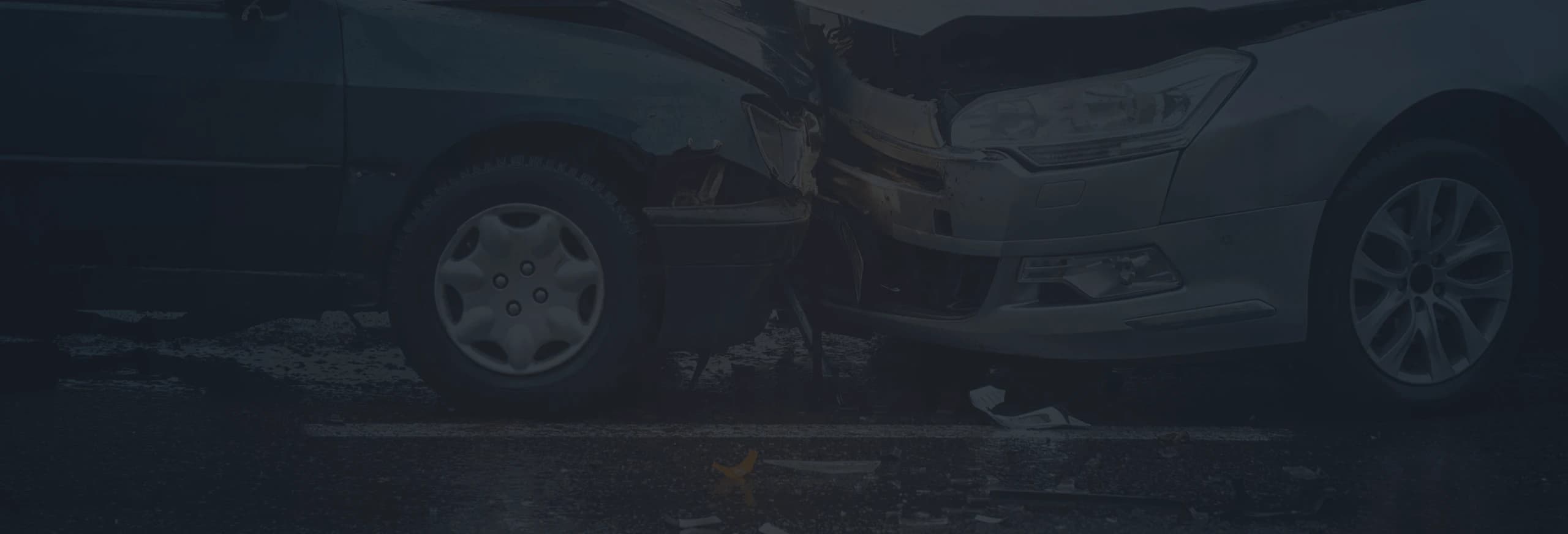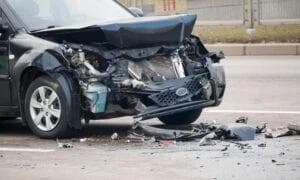
Car Accident Lawyer in Phoenix

Automobile travel is central to Phoenix life, with major thoroughfares linking neighborhoods, offices, and entertainment hubs. Yet the same roads that offer convenience can also pose risks if motorists act carelessly or ignore traffic rules. A collision can inflict lasting injuries and financial strain, from extensive medical expenses to vehicle damage and lost wages.
Below, learn about typical causes of car accidents in Phoenix, how to handle immediate aftermath steps, and why connecting with a lawyer experienced in personal injury could be pivotal for your claim. This information is for educational purposes only; for specific guidance that suits your circumstances, consider seeking a more personalized consultation.
Unique Challenges of Phoenix Car Accidents
A city the size of Phoenix sees a high volume of daily traffic, particularly during rush hours and tourist seasons. With so many vehicles on highways and arterial roads, collisions arise from:
- Congested Roadways
- Bottlenecks can breed impatience, prompting abrupt lane changes or tailgating
- Freeway interchanges and complex on/off ramps demand heightened driver focus
- Extreme Heat
- Sweltering conditions might reduce tire pressure or raise the likelihood of engine overheating
- Heat-related stress can also impair driver concentration
- Rapid Growth
- Ongoing construction adds detours, temporary lanes, or reduced speed zones
- Drivers may struggle with new routes or underestimation of changes to traffic patterns
- Varied Commuter Styles
- Phoenix roads host a mix of local drivers, rideshare services, and out-of-town visitors
- Different familiarity levels and driving habits amplify the risk of misunderstandings
Though local governments strive to enhance roadway safety, accidents still occur. When collisions stem from negligent acts—like speeding, texting, or failing to yield—victims may have the right to pursue compensation for incurred and future losses.
For a free legal consultation with a Personal Injury lawyer serving Phoenix, call (844) 343-9609
Leading Causes of Vehicle Crashes
Car crashes typically involve multiple factors, and identifying the primary contributors helps shape accountability. Frequent culprits include:
- Distracted Driving
- Texting, navigating apps, or conversing on the phone while driving
- Eating or adjusting in-car features also shifts attention from the road
- Impaired Operation
- Substance use—alcohol or drugs—impairs reaction times and decision-making
- Fatigue can act similarly, limiting alertness for vehicles and pedestrians
- Speeding or Aggressive Maneuvers
- Exceeding posted speed limits on highways or neighborhood roads
- Weaving through lanes, tailgating, or ignoring traffic signals heightens crash severity
- Failure to Yield
- Overlooking right-of-way at intersections or merging lanes too hastily
- Collisions with oncoming traffic during risky left turns
- Poor Road Maintenance
- Potholes, uneven pavement, or missing signage could prompt abrupt driver responses
- Roadside debris or unmarked construction zones may impede safe movement
The National Highway Traffic Safety Administration (NHTSA) emphasizes education, enforcement, and cautious driving for accident prevention. Still, if someone else’s disregard for safety factors contributed to your car accident, a legal claim might help you handle medical bills, property repairs, and associated hardships.
Personal Injury Lawyer Near Me (844) 343-9609
Common Injuries Arising From Accidents
Car accidents span a wide severity range, from minor fender-benders to high-speed collisions. Victims often deal with:
- Head and Brain Injuries
- Concussions or traumatic brain injuries if the head hits steering wheels or dashboards
- Lingering effects like chronic headaches, memory loss, or difficulty focusing
- Neck and Spine Trauma
- Whiplash from sudden deceleration can damage ligaments, muscles, or vertebrae
- More severe crashes might fracture vertebrae or compress the spinal cord
- Bone Fractures
- Broken arms, legs, ribs, or pelvis from forceful impacts or being crushed in the vehicle
- Potential surgeries or casts, restricting daily activities for months
- Internal Organ Injuries
- Blunt-force trauma can harm organs like the liver, spleen, or lungs
- Internal bleeding may demand immediate surgical intervention
- Lacerations and Soft Tissue Damage
- Shattered glass or metal edges can cause deep cuts or tendon damage
- Infections and scarring can complicate physical healing
The emotional distress triggered by a car crash can be equally significant, requiring therapy or counseling to manage anxiety about driving again. Documenting both physical and psychological harm in medical records ensures these factors are recognized in any claim for damages.
Click to contact our personal injury lawyers today
Action Steps After a Phoenix Car Accident
What you do right after a collision can affect your health and protect future legal claims. Suggested steps include:
- Prioritize Safety
- Check yourself and others for injuries; call 911 if anyone needs urgent care
- Move vehicles out of traffic if possible, or turn on hazard lights to warn oncoming cars
- Contact Law Enforcement
- Request an official report, including details about who might be at fault
- Gathering officer information aids future communications or clarification
- Exchange Details
- Secure contact and insurance info from all involved drivers
- Be concise; avoid admitting fault or speculating about cause
- Document the Scene
- Take photos of vehicle damage, visible injuries, nearby traffic signals, or skid marks
- Collect witness names and phone numbers
- Seek Medical Attention
- Even mild discomfort can signal deeper issues like whiplash or internal bleeding
- Prompt evaluations create evidence linking injuries to the accident
This approach ensures better clarity of events and sets the stage for a more effective insurance negotiation or legal claim if needed. Delays in reporting or obtaining care sometimes become reasons insurers use to reduce or deny valid claims.
Complete a Free Case Evaluation form now
Potential Compensation for Collision Victims
When another motorist’s negligence or reckless behavior leads to injuries, you can seek damages that address a variety of financial and personal losses:
- Medical Expenses
- Costs from ambulance trips, emergency procedures, hospitalization, medications, and any continuing therapies
- Includes potential future treatments for post-accident care, like physical rehabilitation or follow-up surgeries
- Lost Wages
- Earnings missed during recovery due to hospitalizations or ongoing pain
- May extend to reduced earning capacity if permanent impairments hamper returning to your job
- Property Damage
- Vehicle repair or replacement, plus damage to other personal items inside the car
- Reimbursement for alternative transportation or rental car fees while awaiting repairs
- Pain and Suffering
- Reflecting physical hardships, emotional strain, or changes to daily living
- Chronic discomfort, scarring, or psychological trauma can impact overall quality of life
- Wrongful Death Damages
- If a loved one passed away from crash injuries, their family may file a claim for burial costs, lost support, and emotional distress
- Each state outlines specific guidelines on who can seek these remedies
Collaborating with an attorney who can itemize each expense and limitation fosters a more robust negotiation with insurance adjusters or, if necessary, a stronger case at trial.
The Role of a Car Accident Lawyer in Phoenix
Navigating insurance policies and negotiating settlements can be daunting while juggling treatments or property repairs. A seasoned personal injury lawyer offers strategic benefits, including:
- Evidence Collection
- Reviewing photos, obtaining witness statements, and analyzing accident reconstructions
- Inspecting traffic camera footage if relevant to confirm events leading to the crash
- Accurate Valuation
- Consulting medical specialists and vocational experts to measure long-term care or job consequences
- Accounting for intangible losses, such as emotional distress or persistent discomfort
- Insurance Negotiations
- Managing communications with adjusters so you avoid inadvertently weakening your position
- Opposing low settlement attempts by referencing clear proof of injuries, medical bills, and lost wages
- Filing and Litigation
- Initiating a lawsuit if settlement talks stall, ensuring deadlines and paperwork are met
- Bringing expert testimony to demonstrate fault and highlight the gravity of your injuries
Engaging a lawyer allows you to concentrate on physical recovery and personal responsibilities, rather than devoting hours to phone calls, paperwork, and legal research.
Frequently Asked Questions
Is speaking with the at-fault driver’s insurance company a good idea?
Communicating basic facts is reasonable, but discussing your injuries in detail or providing a recorded statement could jeopardize your claim. Insurance representatives sometimes twist or downplay your remarks. Working with an attorney helps ensure each interaction is handled correctly.
What if I contributed to the collision, like by slightly speeding or being on my phone?
Under Arizona’s comparative fault rules, partial responsibility does not bar you from recovering damages, though your final award could be reduced. A lawyer can assess the extent of potential blame and help counter attempts to assign excessive fault to you.
Should I accept the first settlement offer from the insurer?
Often, initial offers are lower than what your injuries and losses warrant, especially if future medical needs are uncertain. Consulting a lawyer before signing any release or accepting funds helps confirm that the amount reflects the total impact of the accident and covers potential future care.
Serious car crashes can upend your life, introducing medical debts, property replacements, and unexpected downtime from work. If someone else’s recklessness triggered your accident in Phoenix, you don’t have to confront these challenges without support. A car accident lawyer can assess your case, map out negotiation or litigation strategies, and pursue the compensation you deserve—letting you focus on healing and regaining control over your personal and professional worlds.
For a free consultation, call (844) 343-9609
Get an agent on the line in seconds
Responsive
Legal Assistance
Our personal injury attorneys advocate for the funds necessary to cover bills, secure medical treatment, recoup lost wages, and provide compensation for your pain and suffering.
Are you facing unfair treatment from the insurance company?
Do you know the value of your case?
Is the insurance company asserting that the accident is your responsibility?

We'll get back to you ASAP.
Get Your Free Consultation
You Pay Nothing Unless We Recover Compensation For You
